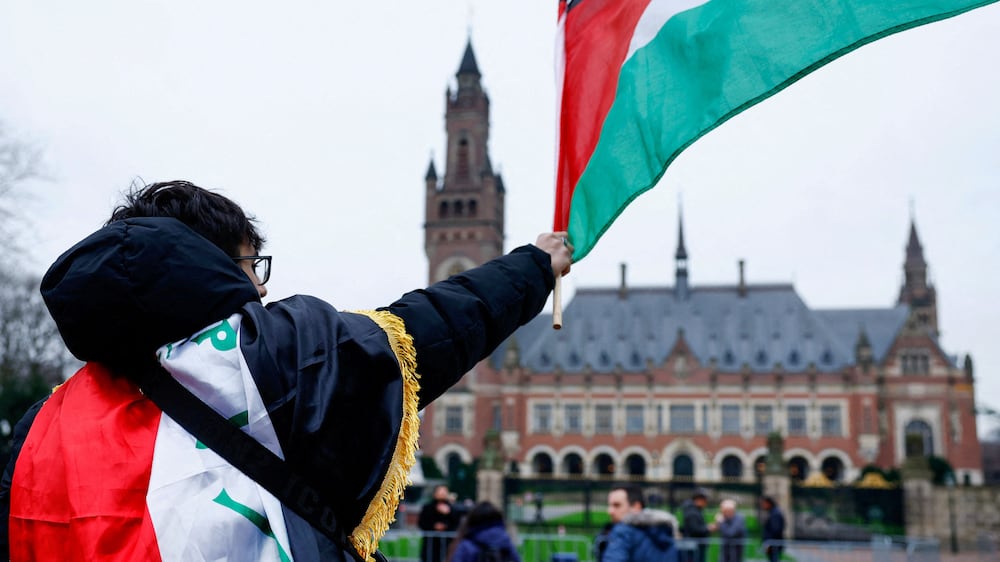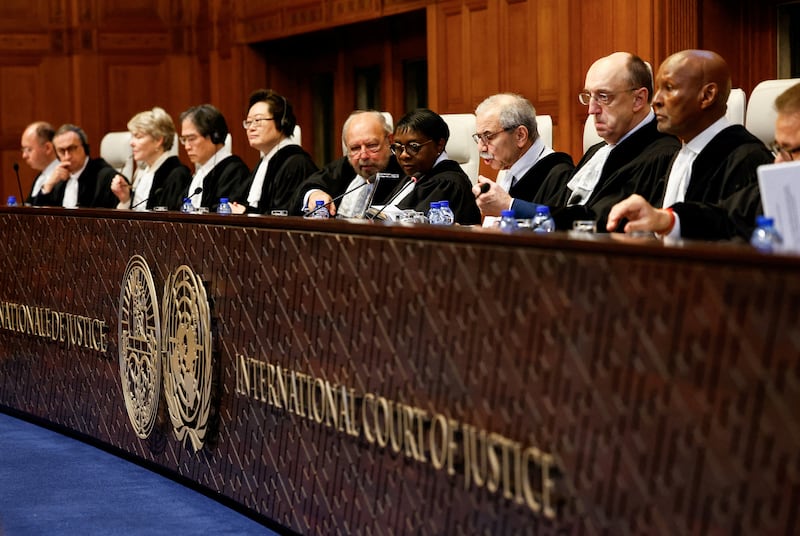Live updates: Follow the latest news on Israel-Gaza
Hearings at the International Court of Justice about the legality of the Israeli occupation of Palestinian territories ended on Monday after 52 countries and international organisations gave statements in what many described as a "historic" moment.
The unprecedented number of interventions in front of the top UN court have highlighted the importance given by a large part of the world to the Israel-Palestinian conflict even before the latest war in Gaza.
The hearings in The Hague are a result of a 2022 request for clarification made by the UN General Assembly.
Several speakers were keen to highlight the need for a end to Israeli "impunity" as there seems to be no end in sight of cycles of violence between Israelis and Palestinians.
“International law cannot be an a la carte menu; it must apply equally to all,” the UAE's ambassador to the UN, Lana Nusseibeh, said last week.
Turkey's deputy foreign minister Ahmed Yildiz on Friday expressed concern about the Israeli government limiting access to Jerusalem's holy sites including Al Aqsa Mosque.
Mr Yildiz criticised the "strong sense of injustice among the Palestinians, and in general in the international community".
He was echoed by a lawyer speaking on behalf of the Organisation of Islamic Co-operation, Monique Chemillier-Gendreau.
"Israel’s unjustified and unpunished use of violence against the Palestinians leads to even more violence in response in an infernal cycle, that of vengeance, and vengeance naturally favours the strongest," Ms Chemillier-Gendreau told the panel of 15 judges.
"To break this chain, an impartial third party is needed authoritatively asserting what the application of a common norm should be.
"It falls to your court, when you hand down this opinion, to bring all of this conflict under the spotlight of the law."
What happens next as hearing ends in ICJ case against Israeli occupation - video
What happens next as hearing ends in ICJ case against Israeli occupation

Hopes for a 'just and lasting peace'
Palestine launched the hearings with a three-hour statement on January 19, unlike other participants that were restricted to half an hour.
“It is so painful to be Palestinian today," its UN envoy Riyad Mansour said in a tearful statement.
He asked that the court deem the Israeli occupation illegal to pave the way to a "just and lasting peace."
Most countries argued that the occupation is illegal and that Israel should withdraw from occupied Palestinian territories.
Some, including the US, the UK and Fiji, said the court should decline to give an advisory opinion because there was a risk that a withdrawal would endanger the security of Israel and could even cause new massacres akin to the Hamas-led attacks on October 7.
Israel did not give an oral statement.
The ICJ is expected to issue an advisory opinion within six months.
Advisory opinions are not legally binding but in their statements, some countries expressed high hopes that it could be used as a tool for political pressure and as a legal reference point in negotiations.
Mauritius, in particular, said that a similar advisory opinion given by the court had been helpful in the case of its dispute with the UK over what it considers to be the continued illegal colonisation of the Chagos Islands.
An advisory opinion on the legality of Israel's could also "make a significant, immediate, and irreversible impact with respect to the right of Palestinian people to self-determination”, said Jagdish Koonjul, the permanent representative of Mauritius to the UN.
Pakistan and Indonesia on Friday said that the ICJ is facing a historic moment in advancing human rights and dignity.
"There is a big hope from the international community, I repeat, a big hope, that ICJ delivers a favourable advisory opinion to the interest of justice and humanity," said Indonesia's Foreign Affairs Minister Retno Marsudi.
"The sanctity of this court must be upheld. Indonesia believes that this legal motion is also a motion of global conscience.
"It not should be another item on the list, another proceeding to dismiss, another call to go unheeded, ignored blatantly by Israel."
Pakistan's Minister for Law and Justice, Ahmed Aslam, said that the proceedings before the ICJ were a "great moment in law" and a "great moment in history".
"We all have a collective opportunity to develop jurisprudence in a way to advance the court of humanity," Mr Aslam said.







